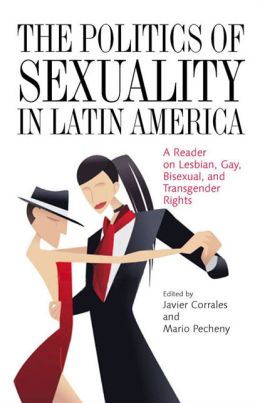 Public Books has added two reviews this week, both dealing with higher ed. The first is a review by Neil Gross, "The Politics of For-Profit Higher Education," which reviews Degrees of Inequality: How The Politics of Higher education Sabotaged the American Dream by Suzanne Mettler (Basic Books). The second is a review from Salamishah Tillet, "Race and Campus Rape: Equal Under The Law?", which looks at Estelle Freedman's Redefining Rape: Sexual Violence in the Era of Suffrage and Segregation (Harvard University Press).
Public Books has added two reviews this week, both dealing with higher ed. The first is a review by Neil Gross, "The Politics of For-Profit Higher Education," which reviews Degrees of Inequality: How The Politics of Higher education Sabotaged the American Dream by Suzanne Mettler (Basic Books). The second is a review from Salamishah Tillet, "Race and Campus Rape: Equal Under The Law?", which looks at Estelle Freedman's Redefining Rape: Sexual Violence in the Era of Suffrage and Segregation (Harvard University Press)."The rise of campus rape activism is only a small part of Stanford historian Estelle Freedman’s latest book, Redefining Rape: Sexual Violence in the Era of Suffrage and Segregation, but her attention to the unique interdependence between racial justice and sexual assault activism in American political history might give us some insight into the limits and the potential of our current moment. Using extensive newspaper articles, court records, and conference reports, as well as personal letters and memoirs, Freedman covers the history of anti-rape activism in the United States and reminds us that “for almost two centuries a regionally, racially, and politically varied group of reformers has tried, in the face of formidable obstacles, to change legal understanding of rape.”"The Washington Post reviews To Make Men Free: A History of the Republican Party by Heather Cox Richardson (Basic).
 On H-Net, The Politics of Sexuality in Latin America: A Reader on Lesbian, Gay, Bisexual, and Transgender Rights (University of Pittsburgh Press) edited by Javier Corrales and Mario Pecheny is reviewed.
On H-Net, The Politics of Sexuality in Latin America: A Reader on Lesbian, Gay, Bisexual, and Transgender Rights (University of Pittsburgh Press) edited by Javier Corrales and Mario Pecheny is reviewed."The Politics of Sexuality in Latin America represents a trailblazing contribution to the study of same-sex sexuality in Latin America. Its move beyond questions of sexual identity to the politicization of that identity, disciplinary and regional breadth, attempts to include studies of lesbians and the transgendered, and publication of primary sources by activists and politicians ensure that a wide audience—scholars, graduate students, and undergraduates from across the humanities and social sciences, as well as law and public policy—will find it useful. Several of the chapters would work well in graduate seminars, while more general pieces, as well as those by activists and politicians, will prove invaluable in undergraduate courses."
 The New Republic reviews Jonathan Eig's The Birth of the Pill: How Four Crusaders Reinvented Sex and Launched a Revolution (Norton).
The New Republic reviews Jonathan Eig's The Birth of the Pill: How Four Crusaders Reinvented Sex and Launched a Revolution (Norton)."Jonathan Eig chronicles the decades-long effort to make that fantasy a reality. In his telling, this transformation is thanks to a unique alliance between feminists and scientists: the spotlight-seeking activist Margaret Sanger, the rebel researcher Goody Pincus, the single-minded heiress Katherine McCormick, and the photogenic family doctor John Rock. These four people provide a formula for what it takes to create scientific breakthroughs that are ahead of their time politically: an incredible amount of drive and little concern for traditional values, a willingness to flout powerful institutions and their rewards, a tremendous amount of money, and, eventually, a way to appeal to the mainstream."Over at New Books in American Studies Phillip Kretsedemas's Migrants and Race in the US: Territorial Racism and the Alien/Outside (Routledge) is discussed.
And, from New Books in Law, there's an interview with Susan Haack about her book Evidence Matters: Science, Proof, and Truth in the Law (Cambridge University Press).